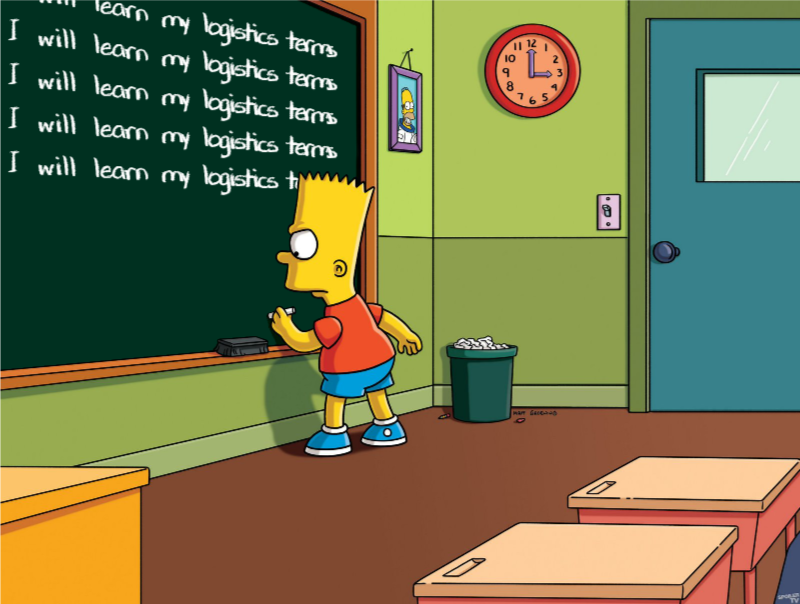Terms for Logistics Company
From the perspective of an AfterShip Logistics Partnerships director
Different countries and cultures have different definitions for industry terms, so here are the definitions from the lens of an AfterShip Logistics Partnerships Director who manages 1,100 logistics partnerships globally:
Logistics Glossary
1PL - 1st Party Logistics. Typically, a retailer or merchant that owns and operates their own logistics is a 1PL. TIP: There is only 1 party involved.
2PL - 2nd Party Logistics. Someone who owns and operates assets like trucks, vans, ships, and planes, and services a customer who needs to use those assets. Technically, someone who owns a warehouse and leases it for use would also qualify as a 2PL (e.g., Goodman). TIP: These are the famous carriers (aka couriers) like UPS, FedEx, DHL, etc.
Carrier Confusion
Carrier. Usage varies by region and industry. Technically, a carrier is any company involved in the transport of goods. This means FedEx delivering a small parcel by truck is a carrier, but Expeditors or Maersk shipping 40-foot containers on a container ship is also a carrier. Yes, this means UPS, DHL, and FedEx can be both a 2PL and a carrier. I’ve noticed that those in the logistics industry tend to primarily use “carrier” to refer to ocean and air providers. TIP: It’s always clearer if you specify "parcel carrier" vs. "ocean carrier."
Common Carrier. Carriers like FedEx, UPS, and DHL can also be referred to as common carriers. A common carrier typically serves the wider public with a general, consistent offering to all or most of its customers. Yes, this means that DHL, FedEx, and UPS can be a 2PL, carrier, and common carrier simultaneously.
Courier. A courier could be considered a type of carrier. Couriers are typically associated with fast, small deliveries. I’ve noticed that in some countries, eCommerce sellers prefer to use the term “courier” for companies like UPS, FedEx, and DHL, while in others, they prefer “carrier.” TIP: The nice thing about using the term courier is that nobody will think you mean MOL or Schenker when you say “courier.”
Heavy Parcel, Oversized Parcel, 2-Man Delivery. Parcel carriers will often have a limit on how heavy or large a parcel can be. Shipments that exceed those thresholds will have to go with specialized providers that can offer “heavy parcel”, “oversized parcel”, or “2-Man Delivery.” These shipments are typically delivered in trucks and vans. They can be parcels, but might also be furniture or appliances.
LTL/FTL, Trucking, Road, Freight. These terms usually refer to transporting bulkier cargo. Very likely the cargo, if consumer goods, will now be palletized.
3PL: A Most Confusing Term
This is the most confusing term I encounter in my day-to-day life. For most people with some understanding of logistics in North America, 3PL means a warehouse that handles pick, pack, and shipping operations.
However, 3PL is more broadly defined as any company that manages logistics and supply chain services on behalf of their client. For instance, if UPS, DHL, or FedEx has a contract to manage all the transport and delivery for a client’s business—sometimes using contractors or partners for deliveries—I would still classify this as a 3PL.
In many countries, particularly in Southeast Asia, 3PL often refers to delivery platforms like Lalamove, GoGoX, or Grab, which manage independent contractors at scale for transport and delivery.
Contract Logistics. This is probably a better term with less confusion. Almost nobody will disagree that a company providing warehousing, storage, and labor is a contract logistics company. The challenge is that the historical context of this term is tied to the enterprise segment, where dedicated teams and operations were set up specifically for a client or project with highly customized terms—hence, a “contract.” Calling Amazon FBA or ShipBob a contract logistics company might feel odd to most.
Fulfillment Company. My preferred term for companies that provide eCommerce warehousing, fulfillment, and shipping. In no country or industry has it ever been unclear what I mean when I say fulfillment company.
4PL - 4th Party Logistics. Another confusing term, but thankfully used much less often—and usually incorrectly. A 4PL originally referred to a company that manages the entire supply chain for a client. The problem is that most people don’t fully understand what “supply chain” means and consider anyone managing a lot of processes for a client to be a 4PL. As a result, many now believe that a 4PL is just a company that “does a lot of stuff”… yes, talk about vague.
3PL Aggregator or Fulfilment Aggregator. Some companies manage multiple 3PLs or oversee all of the 3PLs and logistics operations for their clients. Some of these act as consultants, while others are tech companies that call themselves 4PLs. However, unless they are managing the entire supply chain, they should more accurately be called a fulfillment aggregator.
Supply Chain. Often used incorrectly, the term "supply chain" refers to the entire chain of activities from production to delivery, which includes sourcing and procurement. Many trucking companies incorrectly call themselves supply chain companies. While they are involved in a component of the supply chain, they have no responsibility for upstream or downstream activities. As such, they are not supply chain companies.


